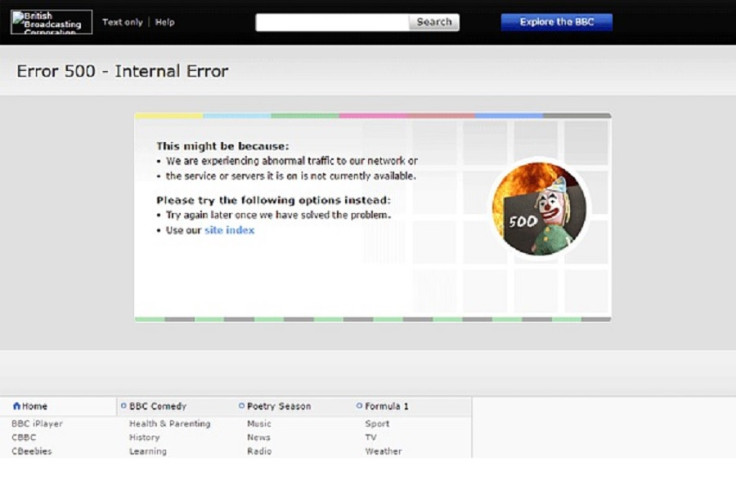Anti-Isis hackers say New Year's Eve cyberattack on BBC website was just a test

An anti-Islamic State (Isis) hacking group has claimed responsibility for a cyberattack on the BBC website on New Year's Eve. The website, including its news service and iPlayer online TV and radio services, was down for several hours on 31 December, due to a distributed denial of service (DDoS) attack.
Users of the website began complaining about problems accessing the website at around 7am on 31 December with an error message appearing instead of the BBC homepage. The corporation originally blamed a "technical issue" and managed to get the website up and running again by 10.30am with minor issues continuing until midday.
A source at the corporation later confirmed that a DDoS attack had been the reason for the website going down. These types of hacking attacks overload a website with a surge of traffic it cannot handle, causing the servers the website is stored in to stop responding to requests.
New World Hacking – the group which claimed responsibility – claim to concentrate on taking down websites supporting Isis (Daesh) or sites that are affiliated to the terror group. A tweet sent out from Twitter account which claims to be linked to New World Hacking, said the cyberattack was carried out to test its capabilities, and they did not mean to take the BBC's website offline for "hours".
REMEMBER.. Only a DDoS attack test..
ISIS will be our main target. #BinarySec
https://t.co/tNizF8aTDl
— New World News (@NewWorldHacking) January 2, 2016According to the BBC the group contacted their technology correspondent Rory Cellan-Jones, saying: "We are based in the US, but we strive to take down Isis [IS] affiliated websites, also Isis members. We realise sometimes what we do is not always the right choice, but without cyber hackers who is there to fight off online terrorists? The reason we really targeted [the] BBC is because we wanted to see our actual server power."
A National Crime Agency spokesperson told the Telegraph: "DDoS is a blunt form of attack which takes volume and not skill. It's a very basic attack tool. One analogy is too many people trying to get through a revolving door at the same time so that the door gets stuck."
Hackers claiming to represent IS jihadists have also been known to target various websites based in the west such as churches or even lower-league football teams. Despite being in contact with the hackers, the BBC has not confirmed an attack caused the problems with its website.
In October, an anti-Daesh (IS) hacking group managed to infiltrate the emails of IS fighters to expose the love affairs between them and women supporting their cause. A Saudi-based group, Cyber of Emotion, launched its campaign against IS by revealing the identities of IS online supporters in an attempt to stop extremist ideas spreading into Saudi society.
© Copyright IBTimes 2025. All rights reserved.






















